教学培养﹀
新结构经济学实验班郭若菲同学作为青年代表参加第二届“一带一路”能源部长会议
2022-01-05
2021年10月18日-19日期间,第二届“一带一路”能源部长会议在青岛召开。北京大学新结构经济学研究院国际发展合作部作为国家能源局牵头的“一带一路”能源合作伙伴关系合作网络的理事单位,特推荐北京大学新结构经济学实验班学生积极报名参与,该班申请报名的两名学生全部入围,其中郭若菲同学在与各大高校的人才选拔中通过了国家能源局的遴选并为开幕式的青年演讲工作做出了积极贡献,获得了能源局国际司“一带一路”能源合作伙伴关系秘书处授予的荣誉证书。
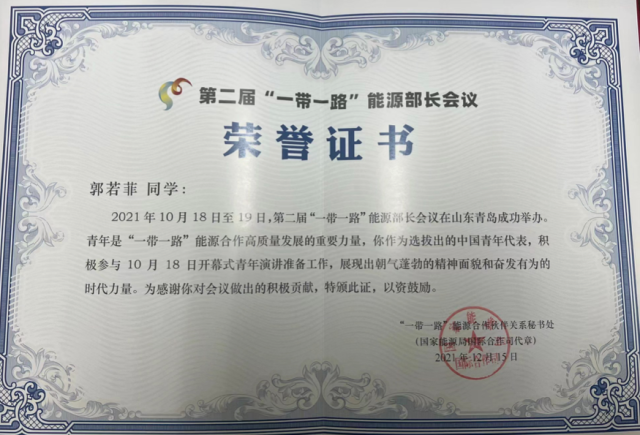
2021年12月27日,我院院长林毅夫教授为郭若菲同学颁发荣誉证书,鼓励林班学生再接再厉、不断进取,为祖国和全球的发展贡献时代力量。
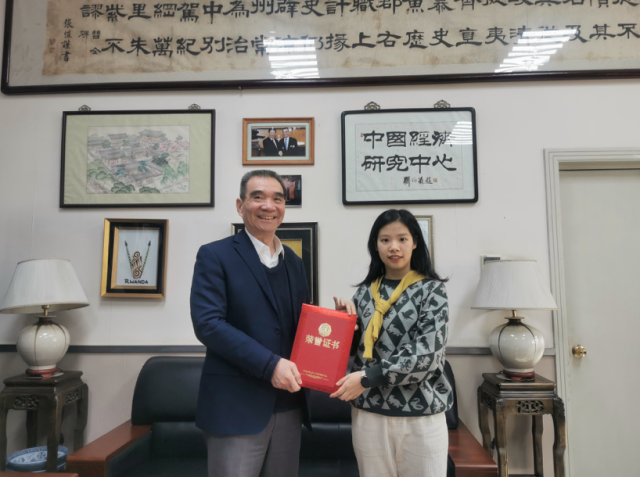
以下为郭若菲同学作为青年代表所准备的发言:
The Green Brick Road Leading into Future
Just a year ago, I was only a volunteer at another conference, the 11th Clean Energy Ministerial, who looked up to all the speakers on stage, dreaming of giving a speech at such a grand event when I grow up a bit more. Well, it turns out I grow up quite fast.
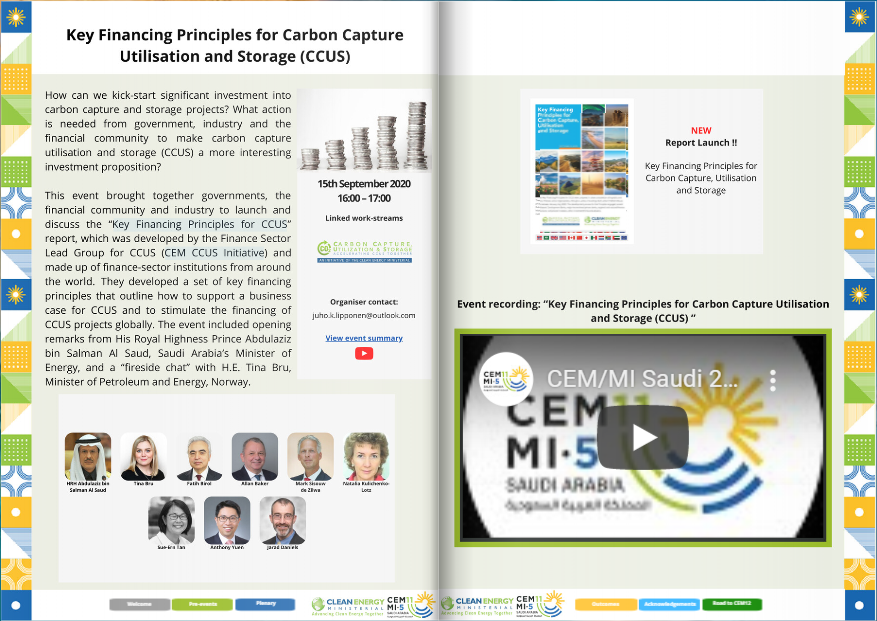
At that time, we took on the unfortunate task of taking notes of each delegate’s speech and translating them. I call it unfortunate because, as it is an international ministerial that claims to take into consideration the heterogeneity across countries, the conference has invited speakers from a variety of nations, who, no offense to their brilliant ideas and expertise that go beyond language, have so thick an accent that it’s almost like they’re speaking their native languages.
That night, as we struggle to crack through their sentences, I began to wonder why, with all those unintelligible accents coming from developed countries, such as Japan, France and Italy, my sweet mother tone, the Chinese accent, which is no better in terms of articulation, has never come to my ears. Nor did I heard a single speech coming from the energy-rich Kuwait, or India, whose contribution to green innovation is growing rapidly, or hardly any country in the Belt and Road Initiative. Apparently, that Ministerial, boosting its comprehensiveness by including guests from governments, banking sector, and industry, has excluded an emerging power that has already taken over 29% of the world GDP and 63% of the population, the Belt and Road group.
Now, it is true that the developed world, represented by OECD countries, has been steering the wheels on green transformation. Free from the more pressing issues of starvation, poverty, and warfare, equipped with richer capital and more advanced technology, and obligated by their historical contribution to climate change, they account for 90% of green invention (OECD, 2017).
So, how are we, mostly as developing countries, relevant?
A very similar question has been haunting me for weeks, as I contemplate over what to write about in the speech I am delivering right now. How am I relevant? How is a teenager like me relevant, in a conference hall filled with ministers of energy and experts in environmental issues, any of whom can easily exert tenfold of the impact I could ever imagine to make on the world green policy?
And I suppose the answer is that, WE ARE THE FUTURE.

As the young, we are the ones in our prime years to witness the world in 2050, which may either be an obsolete desert or a green treasure box; As the young, we are the ones to tirelessly embrace whatever changes the future might bring, as the older generations grow increasingly accustomed to the ‘good old days’ that they as youngsters strove to shape; As the young, we are the ones who, despite the want of power and influence right now, bear infinite possibilities in the future.
One thing a young scholar like me could do, is to add to the understanding of how to protect our planet. During one meeting in the Clean Energy Ministerial, ten principles on financing green energy was put forward. The delegates enthusiastically called for all countries to follow the principles in order to better fund the green industry. Their claim that every country, despite their huge disparities, should follow the same financing model, sounds incredible to me. So, after the ministerial, I carried out a project to test this theory.
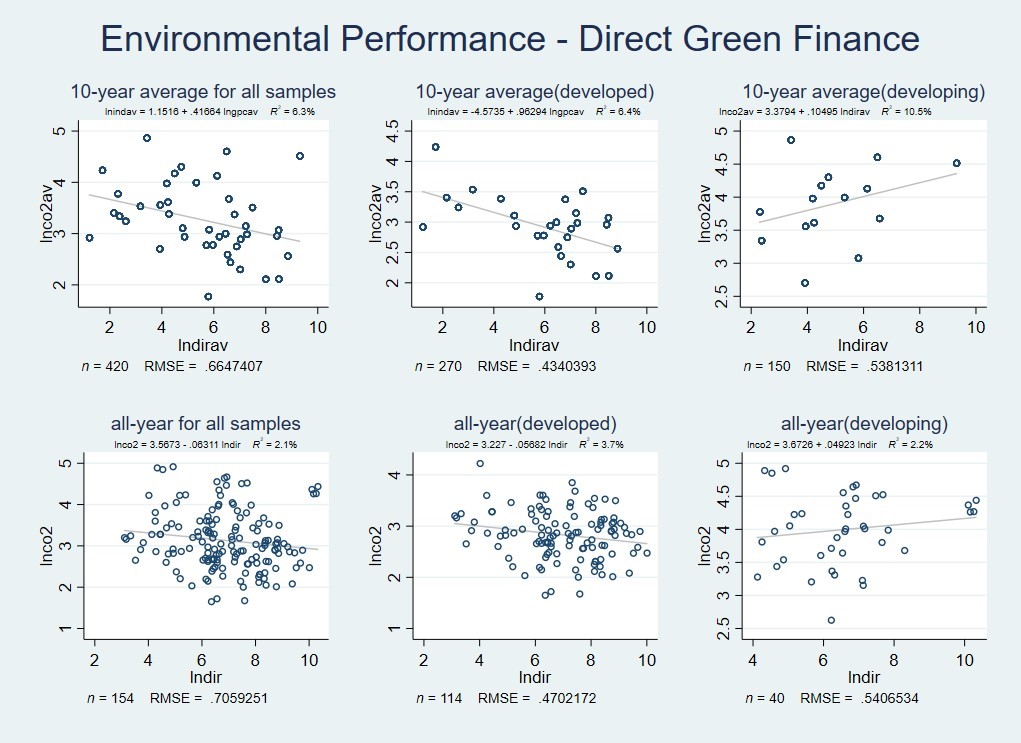
Take direct green finance, such as issuing of green stocks and bonds, as an example. While it is beneficial to developed countries, resulting in less carbon emissions, they in fact do not lead to reduced pollution in developing countries. This is perhaps because in developing countries, a majority of firms are micro-, small- or medium-sized enterprises, which are unable to issue stocks and bonds in the first place. This shows that the one-size-fits-all approach proposed by OECD countries is unreasonable. Although the work is preliminary in its nature, I am looking forward to what deeper research can lead to.
Another thing we can do is to spread the green consciousness. This summer vacation, I served as a voluntary teacher in a mountainous region in Yunnan, a province on the southern border of China that is adjacent to Myanmar, Laos, and Vietnam.
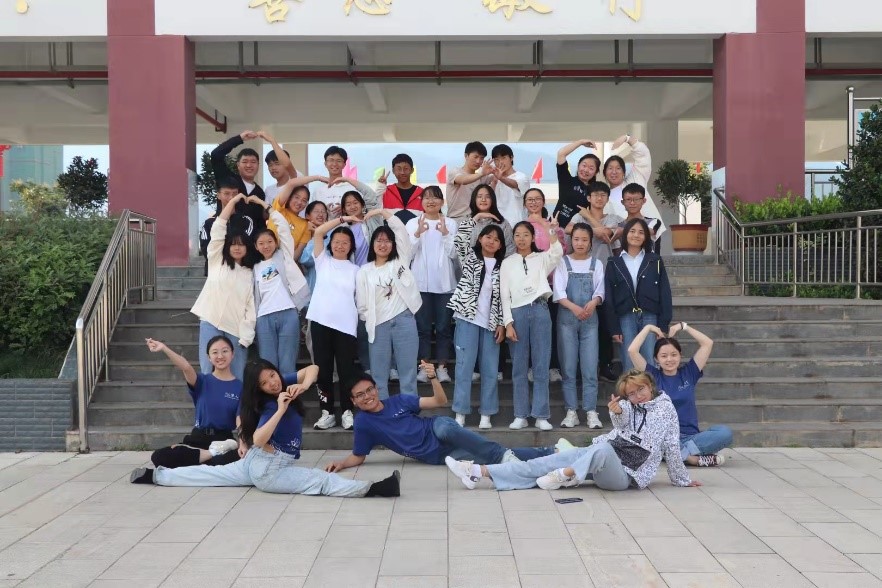
As a not-for-profit organization solely formed by college and high school students, we wanted to share some of our firmest beliefs with the children there. That’s why a course on environmental conservation is also given. Students in different majors talked about environmental issues from economical, philosophical, and aesthetical perspectives. An engineering major also showed us some cutting-edge green technologies. And the feedbacks were overwhelmingly positive. We keep getting the children’s requests to talk a bit more about this or that topic discussed in this course, and one group of children even did a project on ‘the Life of a Waterdrop’. They made amazing handicrafts to illustrate the water cycle, and we are so proud of them for their outcome.
Talking to these peers around me, who share my passion for environmental protection, I felt fortunate that the young generation today are awakening to their relevance in the age of green transformation. They are investing their efforts into their future.
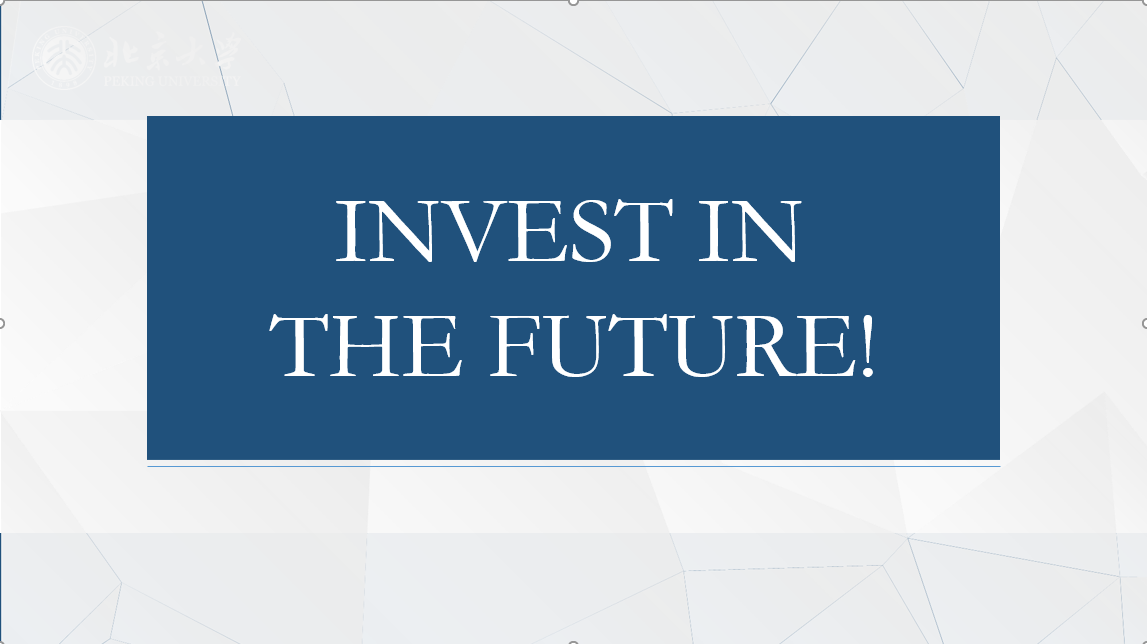
The same answer holds for my previous question. Belt and Road countries are relevant, precisely because by 2050, we will be dominating the world economy that is either in combat or in ally with our long-term sustainable goals; By 2050, with the developed economies running stagnant, we will make the major contribution to the annual reduction of energy consumption; Despite our limited influence today, by 2050, we will have a huge part to play in making the international orders.
That’s why it’s high time that Belt and Road countries should join hands to erase our carbon footprints. Otherwise, by the time we actually become the leaders of the world, it will be all too late. We must invest in the future. And, according to my limited knowledge from Introduction of Financial Economics, that is what investment is all about.
I for one am happy to see that Belt and Road countries have chosen to catch the tide of the future, by bringing the young generation and the emerging world to the stage, and see what they have to talk about. In 1928, a Room of One’s Own by Virginia Woolf, an ingenious essay on calling for women’s right to express themselves, ended up liberating half of the world’s production power. Today, the developing countries are given a room of our own, and it is upon us to steer 63% of the world’s population away from the doomed fate of irreversible planet destruction. The BRI countries and the young people need to join hands together to fight for our future. The moment has finally come for us to choose what 2050 will look like, the 2050 that belongs to us and us only. The moment is right here, right now. Together, we as young people, and we as the BRI group, can turn the Belt and Road into a green brick road that, as the yellow brick road has led Dorothy home, will guide us to a greener home, and lead us, into the future.

2020年,“新结构经济学实验班(林毅夫班)”(以下简称“林班”)由北京大学经济学院和北京大学新结构经济学研究院共同创建。随着中华民族伟大复兴的实现,我国将会逐渐恢复世界经济中心的历史地位,也有望成为世界经济学的研究中心。引领世界经济学理论新思潮的大师有可能大多出自我国,这是有抱负的中国经济学者的一个千载难逢的机遇,与民族复兴同命运的北大学子应该做好准备迎接这个时代的到来。在这样的时代背景下,“林班”应运而生。该项目的招生一般采取二次遴选的方式面向北京大学本科生招生,目前只接受大一年级本科生平级转入申请。在项目设计上,“林班”由北京大学新结构经济学研究院院长、世界银行前首席经济学家兼高级副行长林毅夫教授任首席教授。“林班”的学生,由林毅夫教授领衔的精干教师团队授课并担任导师;有机会得到包括多位诺贝尔经济学奖获得者在内的顶级学术大师的言传身教、学术引领和人生指导。“林班”的学生还有机会到国际组织实习,参与学术研究课题以及国际智库和国内智库的政策实践项目,有机会获得丰厚的奖助学金。
此次郭若菲同学作为青年代表参加“一带一路”能源部长会,展现了“林班”学生的风貌,是对“林班”创立之初的一个肯定。主办方对郭若菲同学的认可也是“林班”的荣誉。期待着“林班”学生都能够在各自的领域发光。“林班”的平台将为学生们提供一切力所能及的支持和帮助。“林班”的创立旨在培养能够掌握新结构经济学理论体系,能够抓住时代机遇,引领我国经济学理论自主创新和引领世界经济学理论新思潮的优秀人才。全体师生将为之一起努力,不辜负这个伟大的时代。

